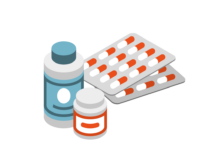By: Trisha Torrey
Published in verywell Health
Updated on February 27, 2020
Research on Noncompliance
According to the World Health Organization (WHO), approximately 125,000 people with treatable ailments die each year in the United States because they do not take their medication properly.1
The WHO also reports that 10—25% of hospital and nursing home admissions result from patient noncompliance. Furthermore, about 50% of prescriptions filled for chronic diseases in developed countries are not taken correctly, and as many as 40% of patients do not adhere to their treatment regimens.
Numerous studies back up the prevalence of patient noncompliance. A review in the Annals of Internal Medicine reported that 20—30% of medication prescriptions are never filled and that approximately 50% of medications for chronic disease are not taken as prescribed.2
Even those at high risk of serious complications often resist following treatment regimens. A 2016 study found that a third of kidney transplant patients don’t take their anti-rejection medications.3 An estimated 41% of heart attack patients don’t take their blood pressure medications.
Needless to say, when patients don’t follow through with the treatment decisions they have made together with their physicians, it can cause additional problems. They may not get over their sickness or injury. They may get even sicker or injure themselves further—or worse.
Reasons Patients Don’t Comply
Research suggests that some of the main reasons patients do not adhere to treatment plans include:
- Denial of the problem: Many diseases and conditions are easy to ignore, even when they have been diagnosed. This is particularly true for diseases that are asymptomatic, meaning they don’t have noticeable symptoms that bother the patient. For example, if you have diabetes or hypertension (high blood pressure), you may not have symptoms that get in the way of everyday life. You may not even have known you had the condition until it showed up on a routine examination.
- The cost of the treatment: Your medications and therapies may or may not be covered by insurance, and the more out-of-pocket costs you have, the less likely you are to buy the drugs or make treatment appointments.
- The difficulty of the regimen: Patients may have trouble following the directions, particularly if they have memory problems or dementia. For example, taking a pill in the middle of the night, or being unable to open a “child-safe” container, may create a barrier to compliance.
- The unpleasant outcomes or side-effects of the treatment: Any perceived negative— such as an unpleasant taste of medicine, the prick of a needle, or the pain of physical therapy—may keep you from following through. Also, patients may be reluctant to start a medication after reading about the possible side effects.
- Lack of trust: If for whatever reason, you don’t believe your treatment is going to make a difference in your health, you may not be motivated to comply.5
- Apathy: When you don’t realize the importance of the treatment, or you don’t care if the treatment works or not, you are less likely to comply.
- Previous experience: Especially in the cases of chronic or repeat conditions, patients will sometimes decide that a treatment didn’t work in the past, so they are either reluctant or unwilling to try it again.
Source: https://www.verywellhealth.com/adhering-to-treatment-recommendations-2614978
Image:https://www.verywellhealth.com/thmb/nUb9oBh30jemwAElKJZfxaQkxgs=/1500×0/filters:no_upscale():max_bytes(150000):strip_icc()/GettyImages-88689535-58d520593df78c5162073926.jpg
Comment:
I selected this article because as provided in the leading section, addressed is the issue of patient noncompliance. This present issue outlines patients who are given medication a follow-up treatment, or refill and, provided above, nearly 40% of such treatments are not adhered to. Therefore, the following section identifies reasons for which patients are not compliant to treatment. Such information can lead to further concept development and be used for the foundation to improve the interaction of information deliverance between medication and corresponding patients.




